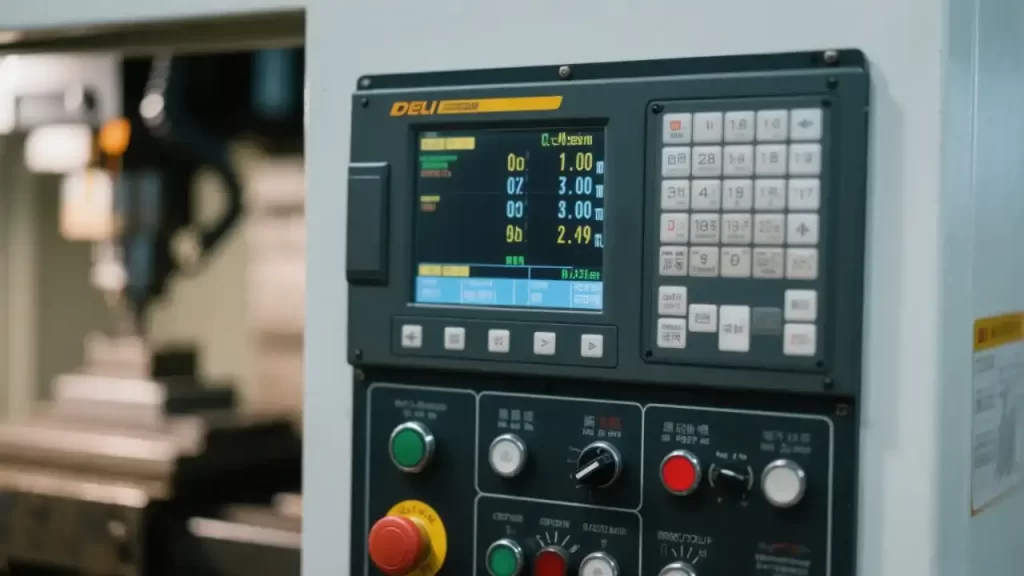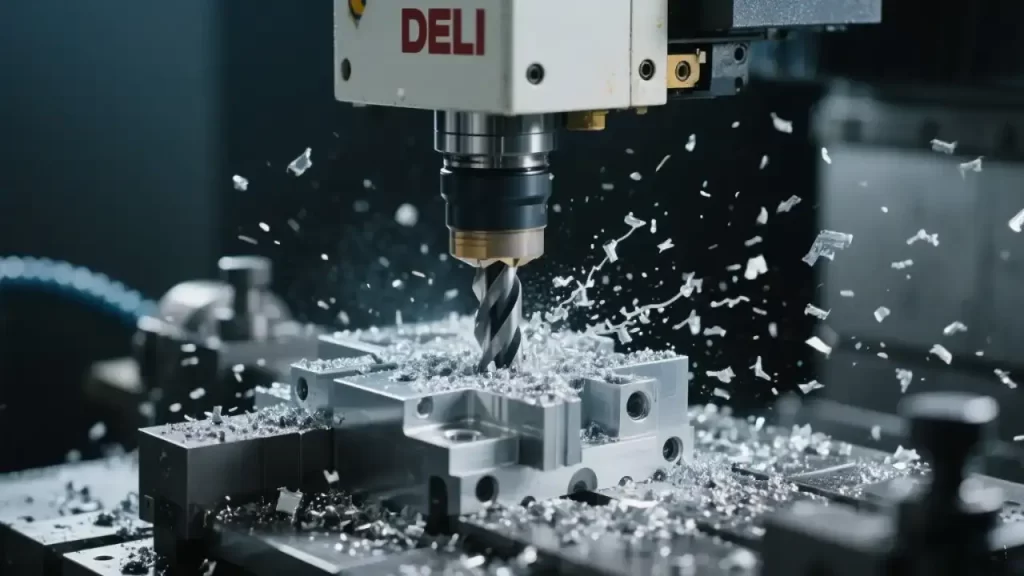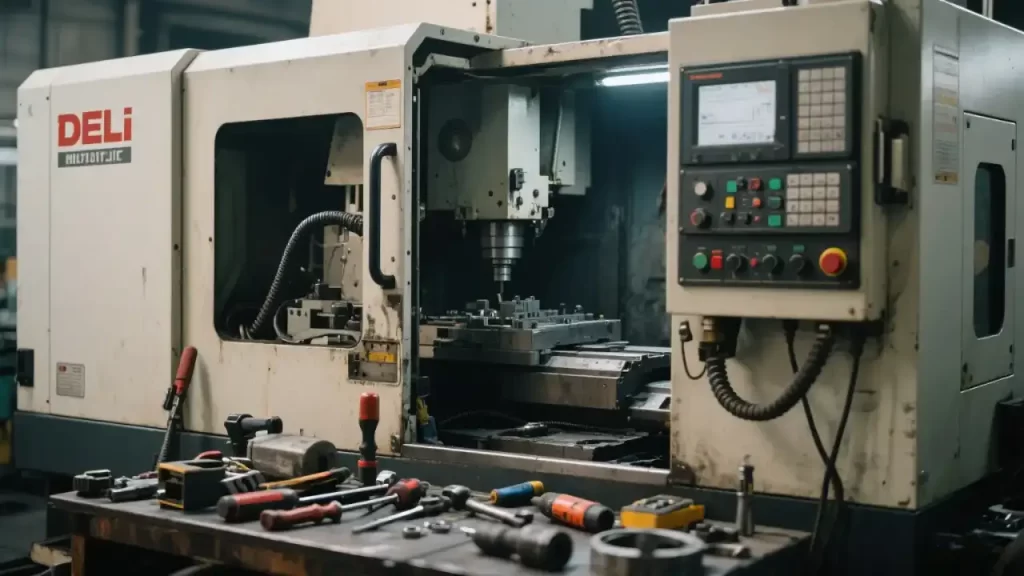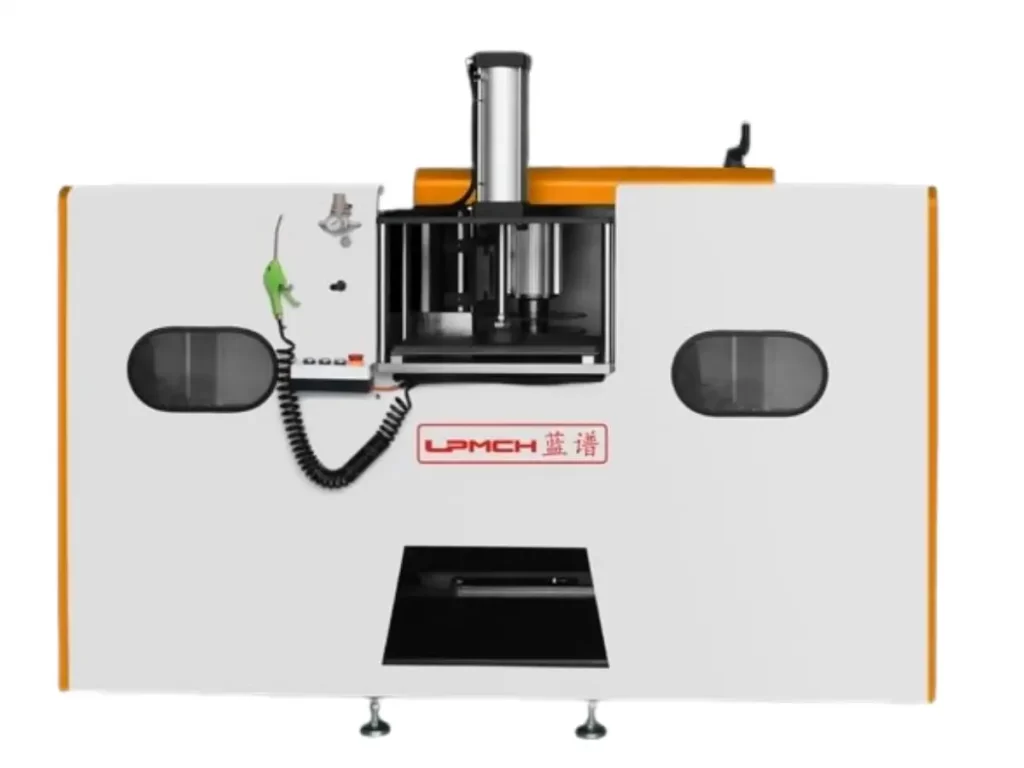Why Are CNC Milling Machines so Expensive? A Deep Dive into High Costs
CNC milling machines are essential tools in industries like aerospace, automotive, and medical manufacturing, thanks to their accuracy, automation, and versatility. However, their price—often ranging from tens of thousands to several million dollars—can seem steep. So, what makes these machines so expensive?
This article explores the four primary factors behind the high cost of CNC milling machines: advanced technology, precision manufacturing, market-driven customization, and strong after-sales support. We’ll also share practical buying tips and answer frequently asked questions to help you make an informed investment.
1. Advanced Technology and Significant R&D Costs

Precision Control Systems
At the heart of CNC milling machines are precision control systems. These systems integrate electronics, sensors, and motion controllers to enable micron-level accuracy (1μm, or about 1/70th the diameter of a human hair). They continuously monitor and adjust tool paths to account for variations in material or thermal changes during machining.
Developing this technology requires years of research and millions of dollars. For instance, DELI’s control system is designed for real-time optimization during high-speed milling, offering both accuracy and efficiency—but its development adds significantly to the cost.
CAD/CAM Software Integration
CNC milling machines rely heavily on CAD (Computer-Aided Design) and CAM (Computer-Aided Manufacturing) software to transform 3D models into accurate toolpaths. These software platforms support complex machining operations, including multi-axis cutting. A single license may cost between $20,000 and $100,000, not including updates and training.
Developing and maintaining this software requires specialized teams. These costs—though not always visible upfront—are embedded into the final machine price.
2. Precision Manufacturing and Premium Materials

Durable Frame and Core Components
To withstand high cutting forces, CNC milling machines are constructed using robust materials such as cast iron or steel alloys. The machine bed, often made of cast iron, plays a key role in maintaining structural stability and minimizing vibrations during operation. This alone can represent over 20% of total cost.
Spindles, servo motors, and ball screws—critical for motion control—often use advanced ceramics and hardened alloys. These materials must endure high-speed rotation and intense loads without compromising precision.
High-End Quality Control
CNC milling machines are engineered for extreme precision, and this demands rigorous quality control. Before leaving the factory, each unit is tested with laser interferometers, which measure axis accuracy at micron levels. This testing equipment is extremely expensive and requires skilled operators.
Calibration and inspection can take hours or even days, depending on the machine’s complexity. These processes ensure that each unit meets tight tolerances but also increase production time and labor costs.
Low-Volume, High-Precision Production
Unlike consumer electronics, CNC milling machines are manufactured in relatively small quantities—tens of thousands globally each year. The low volume limits economies of scale, meaning costs per unit remain high. Additionally, industry-specific configurations—such as for aerospace or mold manufacturing—require customized features, further increasing development and production complexity.
3. Market Dynamics and Customization Needs

Specialized Market Demand
The market for CNC milling machines is driven by precision-focused industries that prioritize performance over cost. In sectors like aerospace and defense, high-end five-axis models are non-negotiable. The complexity of components being manufactured—such as turbine blades or medical implants—demands cutting-edge capabilities, which come at a premium.
With fewer competitors at the high end of the market, suppliers can maintain higher prices while justifying them with consistent performance and reliability.
Modular and Custom Design
Modern CNC milling machines offer a modular architecture, allowing users to add or upgrade systems like automatic tool changers, high-speed spindles, or high-pressure cooling units. While this flexibility is valuable, it adds complexity in both engineering and inventory management.
For example, DELI provides customizable platforms to suit different industries. But non-standard designs mean higher costs in terms of production planning, sourcing, and testing, all of which are reflected in the final machine price.
4. Comprehensive After-Sales Support and Service

Skilled Installation and Training
Setting up CNC milling machines isn’t just a matter of plugging them in. Proper installation, calibration, and training are essential to getting optimal performance. These machines require operators and engineers who understand G-code programming, toolpath optimization, and preventive maintenance.
On-site training services—often included in the sale—can last several days and cost thousands of dollars. Manufacturers offer these services to ensure customer satisfaction and long-term machine efficiency.
Spare Parts and Maintenance Networks
High-performance parts like spindles, tool changers, or ball screws naturally wear over time. Replacing them can be costly. To support users globally, manufacturers maintain international service centers and spare parts warehouses.
Maintaining such infrastructure, especially in regions like Europe and North America, involves significant operating costs, which are factored into the product pricing.
5. Smart Tips for Buying CNC Milling Machines
To get the best return on your investment, follow these practical tips:
- Assess Application Needs: Determine what level of complexity and precision your industry demands. Aerospace may need five-axis machines, while general machining shops may prioritize high-speed three-axis models.
- Balance Cost and Functionality: Consider brands like DELI for a balance of performance and affordability. Avoid overpaying for features you won’t use.
- Evaluate After-Sales Support: Choose vendors with reliable support teams, spare parts availability, and technical service nearby.
- Explore Financing: Leasing or installment plans can ease the financial burden, especially for small and mid-sized manufacturers.
- Calculate Total Cost of Ownership: Factor in maintenance, energy usage, tooling, and service to get a full picture of long-term costs.
6. Frequently Asked Questions
Why are CNC milling machines so expensive?
Because of their reliance on advanced control systems, premium materials, precision manufacturing, and comprehensive after-sales support.
Are used machines a good option?
They can reduce upfront costs but may come with outdated software, worn components, and limited support—potentially leading to higher long-term expenses.
Is buying from a local brand more affordable?
Brands like DELI offer cost-effective options, especially for moderate-precision tasks. However, top-tier control systems and components may still come at a premium.
How can I reduce overall machine costs?
Choose essential features, avoid unnecessary custom options, and explore financing or leasing. Maintenance planning also helps reduce downtime costs.
Conclusion
CNC milling machines carry a high price for good reason. Their combination of technological sophistication, precision engineering, limited production scale, and global service infrastructure makes them invaluable to manufacturers who need top-tier accuracy and efficiency.
From aerospace components to automotive molds and medical implants, these machines deliver measurable value. Brands like DELI help bridge the gap between affordability and advanced performance—making the investment worthwhile for businesses aiming for long-term productivity and competitiveness.



